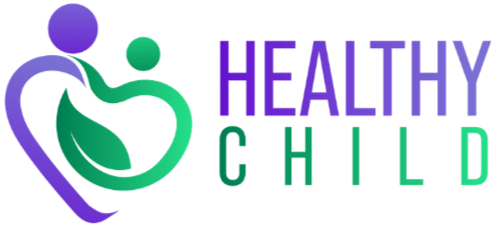Our Parenting Choices
by Pam Leo
“Everyday, every parent makes major and minor, conscious and unconscious decisions about how to interact with their children. We may be pushed by the traditions of culture, or the approval or disapproval of family members, but in the end, all parents decide for themselves how to treat their children.” – Dr. Meredith F. Small, Author of “Our Babies, Ourselves”
From the moment we decide to have a child or find out that we are having a child we begin making important choices about how we will care for our children. Parenting our children will likely be the most important and challenging job any of us will ever have. The parenting choices we make daily are determined by the information and support we have at the time, our life circumstances, how we ourselves were raised and the parenting practices of our culture. Unlike all other important jobs, parenting is the one job for which we get no formal preparation, education or training.
Parents seeking information and guidance often find the advice of child experts and parenting books to be confusing and contradictory. One book or expert says to do one thing and another says to do the exact opposite. Parents often ask me, “How do I tell ‘good’ parenting advice from ‘bad’ parenting advice? How am I to choose what is best for my child?”
Securing and maintaining a strong bond with our children is our primary work as parents. A secure bond or connection with at least one other human being is the greatest emotional need of every child. It is also the biological key to optimal human development. Parenting advice is relevant only to the extent that it honors our human biology and promotes parenting practices that support secure bonding. When considering any parenting advice we must ask ourselves, “If I follow this advice, will I be providing nurturing, guidance, and limits in a way that maintains a secure bond with my child? Our effectiveness as parents will be in direct proportion to the strength of the connection we have with our child. In any interaction will our words and actions strengthen or weaken our connection with a child? Any advice that promotes parent behaviors that compromise trust is counterproductive and undermines the strength of the parent-child bond.
One of the most interesting and important things I have discovered in studying human development is that parenting practices are cultural. What is considered the “normal” way to care for infants and children in one culture can be very different from what is considered normal in another culture.
In many cultures normal includes:
- natural birthing practices that protect the vital mother-infant bond
- honoring genital integrity (no circumcision)
- breast-feeding ideally for two years or beyond
- babies spending the majority of time in human contact, being carried in arms or worn in slings
- babies and young children sleeping with parents
- babies and young children being cared for by parents and relatives the majority of the time
Cultures where these parenting practices are observed are considered high-touch cultures.
In our technologically advanced Western culture normal includes:
- technological birthing practices that interfere with the vital mother-child bond
- circumcision
- formula-feeding from a bottle until the child can drink from a cup
- babies spending the majority of time in plastic baby containers, out of human contact
- babies and young children sleeping alone in a crib in a separate room
- babies and young children being cared for by unrelated others the majority of the time
Cultures where these parenting practices are observed are considered low-touch cultures. The United States is the lowest touch culture in the world. While the high-touch nurturing practices of other cultures may sound strange to parents in our culture, the low-touch parenting practices of our culture sound just as strange to parents in other cultures. Dr. Meredith F. Small, author of “Our Babies, Ourselves: How Biology and Culture Shape the Way We Parent,” reports that in a survey of 186 societies, researchers found that “infants are carried most of the time in nonindustrial societies, 56 percent of the time in less traditional societies, and 25 percent of the time in the United States.”
Many of the infant and child behaviors that are challenging parents in our culture are unheard of in cultures that practice high-touch nurturing. While our culture has changed dramatically to keep up with our technology, our biology has not. Babies are biologically programmed to expect the same high-touch nurturing that evolved millions of years ago. Just because we no longer need to keep our babies in close physical contact so tigers won’t eat them, doesn’t mean we no longer need to carry them. Research shows that carrying and keeping babies in close physical contact does far more than keep them safe from predators; it is critical to their optimal development.
This information about the biological need for high-touch early nurturing and the importance of the parent-child bond is not news even in our culture. Leaders in the field of human development, Joseph Chilton Pearce, Jean Liedloff, Suzanne Arms and James Prescott have been writing and speaking out about the need to return to biologically sound birthing and nurturing practices for nearly 30 years. About 20 years ago, Dr.William Sears began using the term “attachment parenting” to describe these biologically sound birthing and nurturing practices. Attachment parenting promotes natural birth, genital integrity, extended breast-feeding, baby-wearing, family sleeping, and parents as the primary caregivers the majority of the time in the early years.
Many parents who have never heard of attachment parenting choose to breast-feed, or to respond to their children’s needs by holding and carrying them often, or to bring their babies and young children into their bed so everyone can get some sleep, or to be their children’s primary caregivers the majority of the time in the early years. In spite of the dictates of our culture, and the unsolicited advice from family, friends and neighbors, most parents choose to practice some parts of attachment parenting to some degree, at least some of the time. Dr. Sears says that this is the “style of baby care that parents would naturally practice if they followed their own intuition rather than listening to the advice of others.”
In my Connection Parenting workshops the feedback I most often get from parents who did not have the information or support to intentionally practice attachment parenting is, “I wish I’d had this information from the beginning.” We can’t make life better for our children or ourselves by making ourselves wrong for not doing what we didn’t know. However, we can make it better for our children and ourselves by choosing parenting practices now that will strengthen our bond with our children. When we consciously choose behaviors that create a connection with a child, trust is reaffirmed and the bond is strengthened. When we unconsciously behave in ways that create a disconnection with a child, trust is violated and the bond is weakened.
Connection Parenting encompasses attachment parenting as it promotes parenting practices that support maintaining a strong bond with children of all ages. I describe the parenting style promoted in my “Meeting the Needs of Children” workshop series as Connection Parenting because it supports parents in continuing the connection created by attachment parenting. Even if, especially if, we didn’t know about or practice many of the early strong bonding elements of attachment parenting, we can learn parenting practices that will strengthen our bond with our children. We don’t have to observe low-touch parenting practices just because that is what our culture dictates as “normal.” We can choose to take back the high-touch nurturing practices our children are biologically adapted to expect and need for optimal development. Every day is a new opportunity to strengthen the bond. As Dr. Small points out, “we can change the dictates of culture because we are culture.”
“The people are the only ones capable of transforming society.” – Rigoberta Menchu
“Our Parenting Choices”

